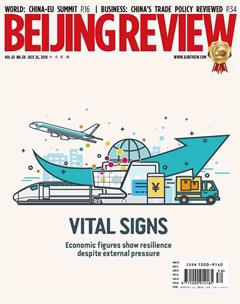Should Dishonest Debtors’ Children Be Excluded From Private Schools?

The Taocheng District Court of Hebei Provinces Hengshui City recently issued judicial advice to private middle schools under its jurisdiction, ordering them not to recruit the children of those on the list of dishonest persons subject to enforcement(dishonest debtors). As a result, the children of these people may face rejection by these schools or be forced to leave them. The judicial advice aims to remind dishonest debtors to fulfill their legal obligations so as to avoid dragging down their children.
It quickly sparked heated debate among the public. Some see it as an effective method of forcing dishonest debtors to fulfill their legal obligations while others believe such a move is unfair and unreasonable.
Fair and effective
Zhu Dan (www.xatvs.com): The Taocheng District Courts judicial advice is not only helping to safeguard social honesty and credit, but is also an effective way to force dishonest persons to fulfill their legal obligation by paying off debts.
Refusing to pay back debts seriously infringes on others rights, threatens social credit and tramples on judicial authority. Actually, courts have already tried to change the situation, with the Supreme Peoples Court (SPC) issuing many regulations to restrict dishonest persons subject to enforcement from high expenses. These efforts have, to some extent, made life harder for these people and resulted in them more actively paying back their debts. Yet, some keep defying these regulations and confronting the court. In this case, it is necessary to raise the consequences of going against the law. The judicial advice to ban dishonest persons children from attending expensive private schools is one such stiff punishments.
This judicial advice has the backing of SPC regulations. Furthermore, it is just a restrictive measure, not a ban. Dishonest parents children still have access to state-run schools.
Stubborn defaulters do serious harm to society and thus effective measures within a legal framework to force them to pay back debts are necessary. In this sense, the judicial advice to restrict these people from entering luxury private schools is reasonable and effective.
Bian Guangcun (www.gmw.cn): Chinese law grants minors the right to education, which no one has the right to take away. Thus, some believe to stop the children of dishonest debtors from going to expensive schools is against the law. Children should not be involved in their parents debt disputes.
In fact, to safeguard petitionerslegitimate rights does not go against the educational rights of minors. What the judicial advice prevents is the children of dishonest debtors from entering private schools that charge high tuition fees. It does not stop these children from studying in staterun schools. Neither will harm the dignity of these children. The judicial advice only aims to restrict dishonest debtors from luxury consumption.
Some dishonest debtors ignore the legitimate rights of petitioners, but still send their children to private schools. According to the relevant regulations of the SPC, dishonest debtors are prevented from luxury consumption, including first-class cabins in airplanes, boats or trains, as well as sending their children to expensive private schools. It is reasonable to restrict their children from being admitted to schools that charge high tuition. Either from the perspective of defending the courts dignity or protecting the legitimate rights of petitioners, the practice is well-grounded.
All in all, it is hoped that dishonest debtors can comply with the verdict of the court instead of going against the law. The general public should realize the importance of honesty and have a sound credit record. Relevant authorities are expected to cooperate with judicial authorities to punish dishonest debtors in a joint effort to build an honest society.
Definition to be clarified
Li Qing (Jinan Daily): Hengshui Prefecture is not the first place to restrict the children of dishonest debtors from entering expensive private schools. Not long ago, Changle No.2 Middle School in Weifang City, Shandong Province, also wrote this regulation into its enrollment brochure.
Is this an innovation or a reckless decision? Childrens educational expenditures depend on the families of dishonest debtors. Every citizen is entitled to education and educational expenditure is a must. However, if expenditure amounts to hundreds of thousands of yuan, ordinary families will be overstretched. The key here is to limit dishonest debtors consumption. Its unacceptable that their children attend luxury schools while they still owe huge debts to others. As these children are still free to attend state-run schools, their right to education is not been breached.
Ouyang Chengyu (www.jstv.com): Current Chinese law and regulations do not allow the right to education of dishonest debtors children to be stripped. The SPC explicitly stipulates that when dishonest debtors are prohibited from high consumption, they are also forbidden from paying high tuition for their children to be enrolled in expensive private schools with their possessed assets. However, the clause targets“expensive,” instead of all private schools, and by no means does it cover university education.

